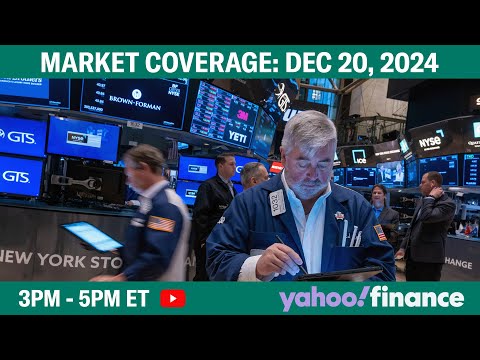#YahooFinance #recession #bitcoin #Biden #Stockmarket #coronavirus #memestocks #Fed #YahooFinance #investing #stockmarket #crypto
To get the latest market news check out finance.yahoo.com
US stocks bounced back Friday as investors digested key inflation data that showed a deceleration in price increases during the month of November.
The tech-heavy Nasdaq Composite (^IXIC) gained 1%. The Dow Jones Industrial Average (^DJI) added 1.2%, while the S&P 500 (^GSPC) rose 1.1%.
But the rebound wasn’t enough to overcome losses earlier in the week. All three major gauges finished the week lower. The Nasdaq gave up 1.8% while the Dow and the S&P both shed around 2%.
Stocks responded favorably to the release of the latest reading of the core Personal Consumption Expenditures (PCE) index. The data showed price increases decelerated in November on a monthly basis and came in below economists’ estimates.
A Fed-induced sell-off earlier in the week left the major averages reeling as the central bank projected fewer rate cuts for 2025 than it had previously forecast. And although stocks mostly stabilized on Thursday, the threat of a government shutdown, coupled with more Trump tariff threats on Europe, pressured global markets across the board early in Friday’s session.
"I told the European Union that they must make up their tremendous deficit with the United States by the large scale purchase of our oil and gas," Trump said in a post on Truth Social. "Otherwise, it is TARIFFS all the way!!!"
Global chip stocks sold off and then recovered, with Europe’s ASML (ASML) and Taiwan’s TSMC (TSMC34.SA) falling less than 1%.
In individual names, Novo Nordisk (NVO) plunged close to 20% before paring losses — the most in over two decades — after its obesity drug trial disappointed investors.



